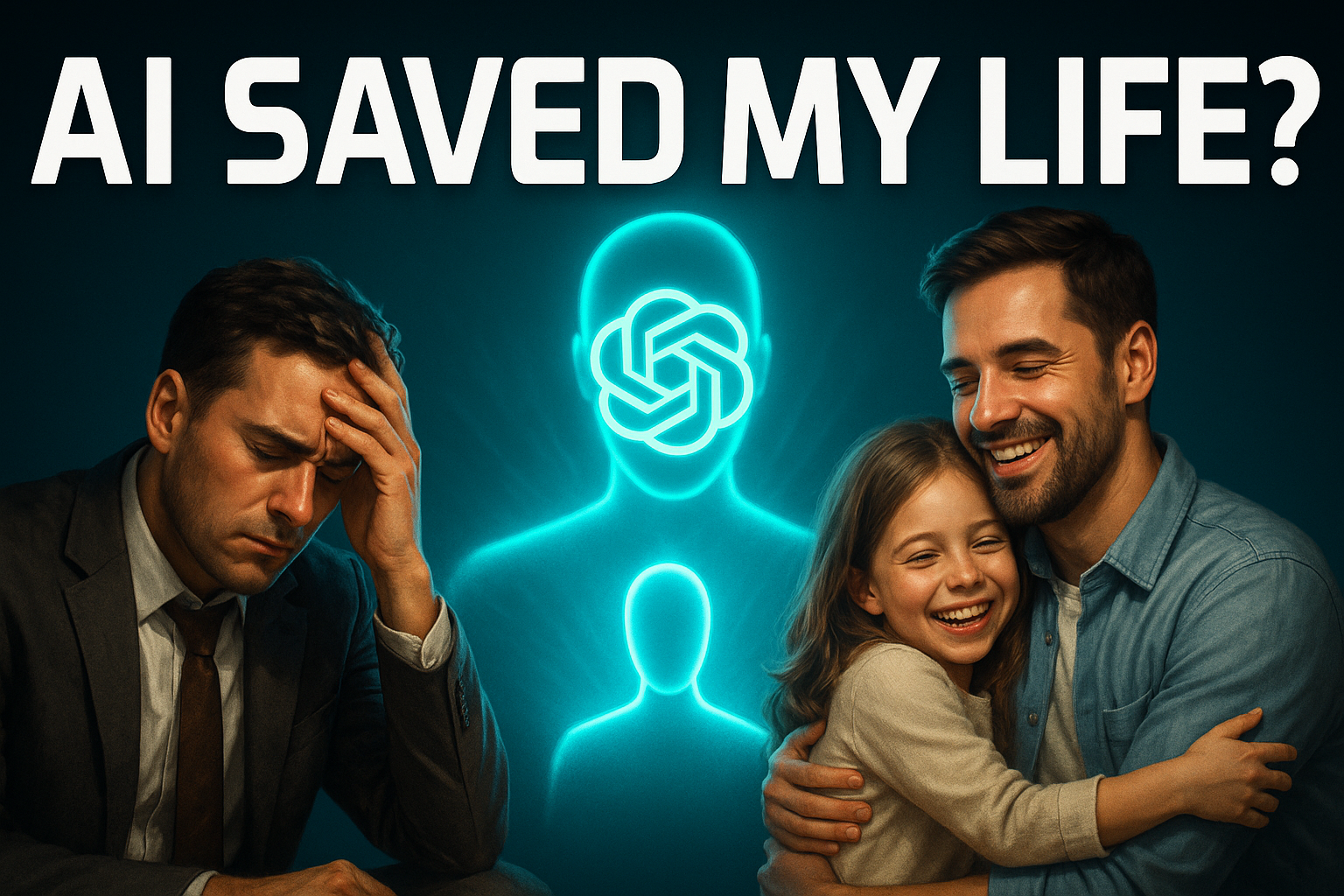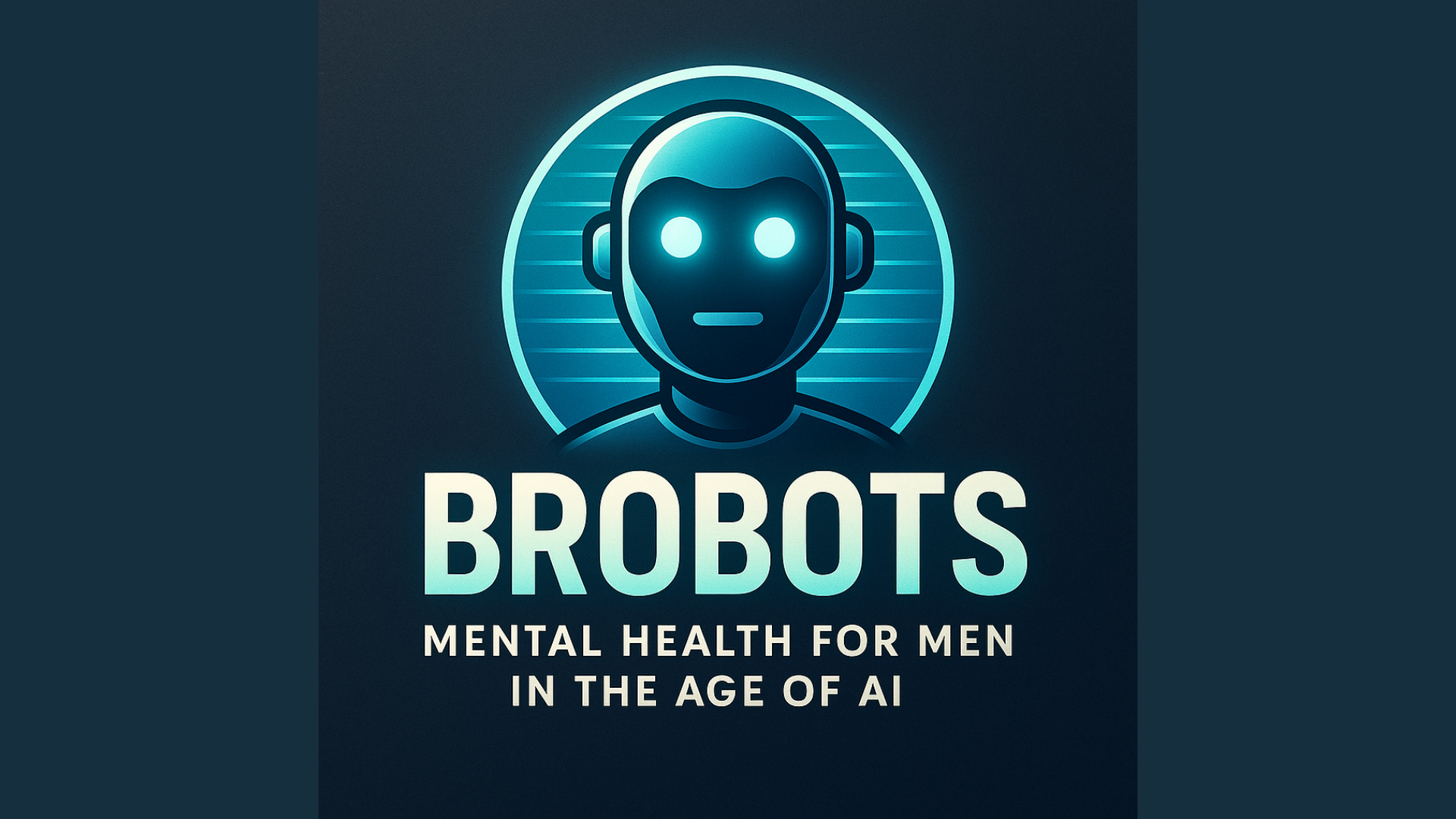AI Therapy: A Lifeline When Traditional Therapy Falls Short

Mental health is more important than ever. Yet, traditional therapy isn't always accessible or effective for everyone. This is where AI steps in, offering a potential lifeline. In this blog post, we will explore how AI tools, such as ChatGPT, can provide mental health support when traditional therapy falls short. We'll delve into the story of a business executive who overcame suicidal thoughts and repaired his relationships with the help of AI. We’ll discuss the benefits, risks, and ethical considerations surrounding AI therapy, as well as the prompting techniques that make it effective. Be sure to check out our latest episode, How AI Can Be Used For Mental Health, where we delve even deeper into this fascinating topic with Rajeev Kapur.
Introduction: When Traditional Therapy Isn't Enough
Traditional therapy has long been the gold standard for mental health care. However, it's not without its limitations. Cost, accessibility, stigma, and the availability of suitable therapists can all present significant barriers. For many individuals, these obstacles make traditional therapy impractical or impossible. Even when therapy is accessible, it may not always provide the immediate or customized support needed to address specific challenges. This is where AI-driven mental health tools offer a promising alternative or supplement.
AI can provide on-demand support, personalized feedback, and a safe space for individuals to explore their thoughts and emotions. While it's not a replacement for human therapists, AI can act as a valuable resource, particularly for those who are unable to access or benefit from traditional therapy. This blog post explores the potential of AI as a mental health support tool, examining its capabilities, limitations, and ethical considerations.
The Story of a Business Executive Saved by AI
Consider the story of a high-powered business executive, grappling with immense stress, professional setbacks, and deteriorating relationships. He found himself spiraling into depression and experiencing suicidal thoughts. Traditional therapy was not providing the immediate relief and personalized guidance he desperately needed. In a moment of desperation, he turned to AI, specifically ChatGPT, seeking a listening ear and a source of support.
Through carefully crafted prompts and thoughtful conversations with the AI, he began to unpack his emotions, identify the root causes of his distress, and develop coping strategies. The AI provided objective feedback, offered alternative perspectives, and helped him gain clarity on his situation. Over time, he started to experience a shift in his mindset. He reconnected with his daughter, repaired his marriage, and even saved his company from financial ruin, all with the aid of AI. This story demonstrates the transformative potential of AI as a mental health support tool when traditional methods fall short. It underscores that AI isn't just a technological novelty but a genuine lifeline for those in need.
AI as a Mental Health Support Tool
AI tools like ChatGPT are not designed to replace therapists but to augment and complement existing mental health resources. These tools can provide several benefits:
- Accessibility: AI is available 24/7, providing immediate support regardless of location or time.
- Affordability: AI therapy tools are often more affordable than traditional therapy, making them accessible to a wider range of individuals.
- Anonymity: AI can provide a safe and anonymous space for individuals to explore their thoughts and emotions without fear of judgment.
- Personalization: AI can tailor its responses and recommendations based on individual needs and preferences.
- Objective Feedback: AI can offer objective feedback and alternative perspectives, helping individuals gain clarity on their situation.
However, it's important to recognize the limitations of AI in mental health care. AI cannot provide empathy, build genuine human connections, or offer the nuanced understanding that a human therapist can. AI is also limited by the data it is trained on, which may contain biases or inaccuracies. Therefore, AI should be used as a supplementary tool and not as a replacement for professional mental health care.
How AI Can Repair Relationships and Communication
One of the most compelling applications of AI in mental health is its ability to improve relationships and communication. AI can act as a neutral third party, facilitating constructive dialogue and helping individuals understand each other's perspectives. For instance, AI can analyze communication patterns and identify areas of conflict or misunderstanding. It can then provide personalized feedback and suggest strategies for improving communication skills. AI can also help individuals practice empathy by role-playing different scenarios and encouraging them to consider the other person's point of view. This is particularly helpful for couples or families struggling with communication issues.
In the case of the business executive, AI played a crucial role in repairing his relationships with his daughter and wife. The AI helped him understand their perspectives, communicate his feelings effectively, and rebuild trust. By providing a safe and non-judgmental space for communication practice, AI empowered him to address long-standing conflicts and foster healthier relationships.
Prompting Techniques for Effective AI Therapy
The effectiveness of AI therapy depends heavily on the quality of prompts used. Clear, specific, and well-defined prompts can elicit more helpful and relevant responses from the AI. Here are some prompting techniques to consider:
- Be Specific: Clearly state your concerns and objectives. Avoid vague or general prompts.
- Provide Context: Give the AI enough background information to understand your situation.
- Ask Open-Ended Questions: Encourage the AI to provide detailed and thoughtful responses.
- Use "What If" Scenarios: Explore different possibilities and outcomes to gain new perspectives.
- Request Actionable Advice: Ask the AI to provide specific steps you can take to address your challenges.
- Set Boundaries: Clearly define the scope of the conversation and avoid discussing sensitive or inappropriate topics.
For example, instead of asking "How can I improve my relationship?", a more effective prompt would be "I'm struggling to communicate with my partner. We often argue and misunderstand each other. What are some specific communication strategies we can use to resolve conflicts more constructively?" By using these techniques, you can maximize the benefits of AI therapy and gain valuable insights into your mental health.
The Importance of Data Privacy in AI Mental Health Apps
Data privacy is a paramount concern when using AI-powered mental health applications. These apps collect sensitive personal information, including thoughts, emotions, and behaviors. It's crucial to ensure that this data is protected from unauthorized access, use, or disclosure. Users should carefully review the privacy policies of AI mental health apps and understand how their data is collected, stored, and used. Look for apps that employ robust security measures, such as encryption and anonymization, to protect user data. Additionally, consider using privacy-enhancing techniques, such as pseudonymization, to further safeguard your personal information. It is also wise to limit the amount of personally identifiable information that you share with the AI.
It's essential to be aware of the potential risks of data breaches and unauthorized access. If your data is compromised, it could have serious consequences for your privacy and mental health. Therefore, it's crucial to choose AI mental health apps from reputable providers with a strong track record of data security.
Deepfake Risks and Responsible AI Use
Deepfakes, or synthetic media, pose significant risks in the context of mental health. Deepfakes can be used to create convincing but false videos or audio recordings that can damage reputations, spread misinformation, and even manipulate emotions. In the realm of AI therapy, deepfakes could be used to impersonate therapists, create fake testimonials, or even fabricate evidence to support false claims. It is important to be able to identify Deepfakes when you see them. Look for unusual facial movements, inconsistencies in audio and video, and other telltale signs of manipulation.
Responsible AI use is crucial to mitigating these risks. Developers of AI mental health tools should implement safeguards to prevent the creation and dissemination of deepfakes. Users should be educated about the risks of deepfakes and how to identify them. Additionally, regulations and ethical guidelines should be established to govern the use of AI in mental health care and prevent the misuse of deepfake technology. Users also have a responsibility to protect themselves and others from harmful content.
AI's Role in the Future of Work and Universal Basic Income
The rise of AI is poised to transform the future of work, with many jobs potentially being automated or displaced. This could lead to increased unemployment and economic inequality. In response, some experts have proposed the implementation of universal basic income (UBI) to provide a safety net for those who are displaced by AI. UBI is a regular, unconditional cash payment provided to all citizens, regardless of their income or employment status.
AI could play a role in administering and optimizing UBI programs. AI algorithms could be used to identify individuals who are most in need of support, personalize UBI payments based on individual circumstances, and monitor the effectiveness of UBI programs. Additionally, AI could be used to create new job opportunities in areas such as AI development, maintenance, and ethical oversight. The use of AI in mental health treatment would also free up the therapist to focus on more complex problems. By embracing AI responsibly and implementing policies like UBI, we can ensure that the benefits of AI are shared broadly and that no one is left behind.
Ethical Considerations in AI Development
Ethical considerations are paramount in the development and deployment of AI technologies, particularly in sensitive areas such as mental health. Developers must address issues such as bias, fairness, transparency, and accountability. AI algorithms can perpetuate existing biases in society, leading to unfair or discriminatory outcomes. It's crucial to ensure that AI systems are trained on diverse and representative data sets and that algorithms are designed to mitigate bias.
Transparency is also essential. Users should understand how AI systems work, how they make decisions, and how their data is used. Accountability mechanisms should be established to address any harms caused by AI systems. This includes establishing clear lines of responsibility and providing avenues for redress. By addressing these ethical considerations, we can ensure that AI is used responsibly and ethically to benefit society.
Therapists Should Embrace AI
Rather than viewing AI as a threat, therapists should embrace it as a valuable tool to enhance their practice. AI can automate routine tasks, such as scheduling appointments and managing patient records, freeing up therapists to focus on more complex and nuanced aspects of care. AI can also provide therapists with data-driven insights into patient behavior and progress, enabling them to tailor treatment plans more effectively. Additionally, AI can be used to extend the reach of therapy to underserved populations, providing access to mental health care for those who might otherwise go without. By integrating AI into their practice, therapists can enhance their efficiency, effectiveness, and reach.
AI is Still in Its Early Stages
It's important to remember that AI is still in its early stages of development. While AI has made significant progress in recent years, it still has limitations. AI cannot replicate the empathy, intuition, and human connection that are essential to effective therapy. AI is also limited by the data it is trained on and can be susceptible to errors and biases. Therefore, AI should be used as a supplementary tool and not as a replacement for human therapists. As AI technology continues to evolve, it will be important to carefully evaluate its potential and limitations and to ensure that it is used responsibly and ethically.
Resources: Books on AI and Prompting
To learn more about AI and prompting techniques, consider exploring the following resources:
- AI Made Simple (3rd Edition) by Rajeev Kapur
- Prompting Made Simple by Rajeev Kapur
These books provide a comprehensive overview of AI and offer practical guidance on how to use prompting techniques to maximize the benefits of AI therapy.
Conclusion: AI as a Lifeline and the Path Forward
AI offers a promising lifeline for those who find traditional therapy inaccessible or ineffective. While it's not a replacement for human therapists, AI can provide valuable support, personalized feedback, and a safe space for individuals to explore their thoughts and emotions. As we've seen in the story of the business executive, AI can help individuals overcome suicidal thoughts, repair relationships, and improve their overall well-being. However, it's crucial to use AI responsibly, paying close attention to data privacy, mitigating the risks of deepfakes, and addressing ethical considerations. By embracing AI thoughtfully and ethically, we can harness its potential to improve mental health care and create a more inclusive and supportive society. Don't forget to check out our episode How AI Can Be Used For Mental Health for more on this topic!















